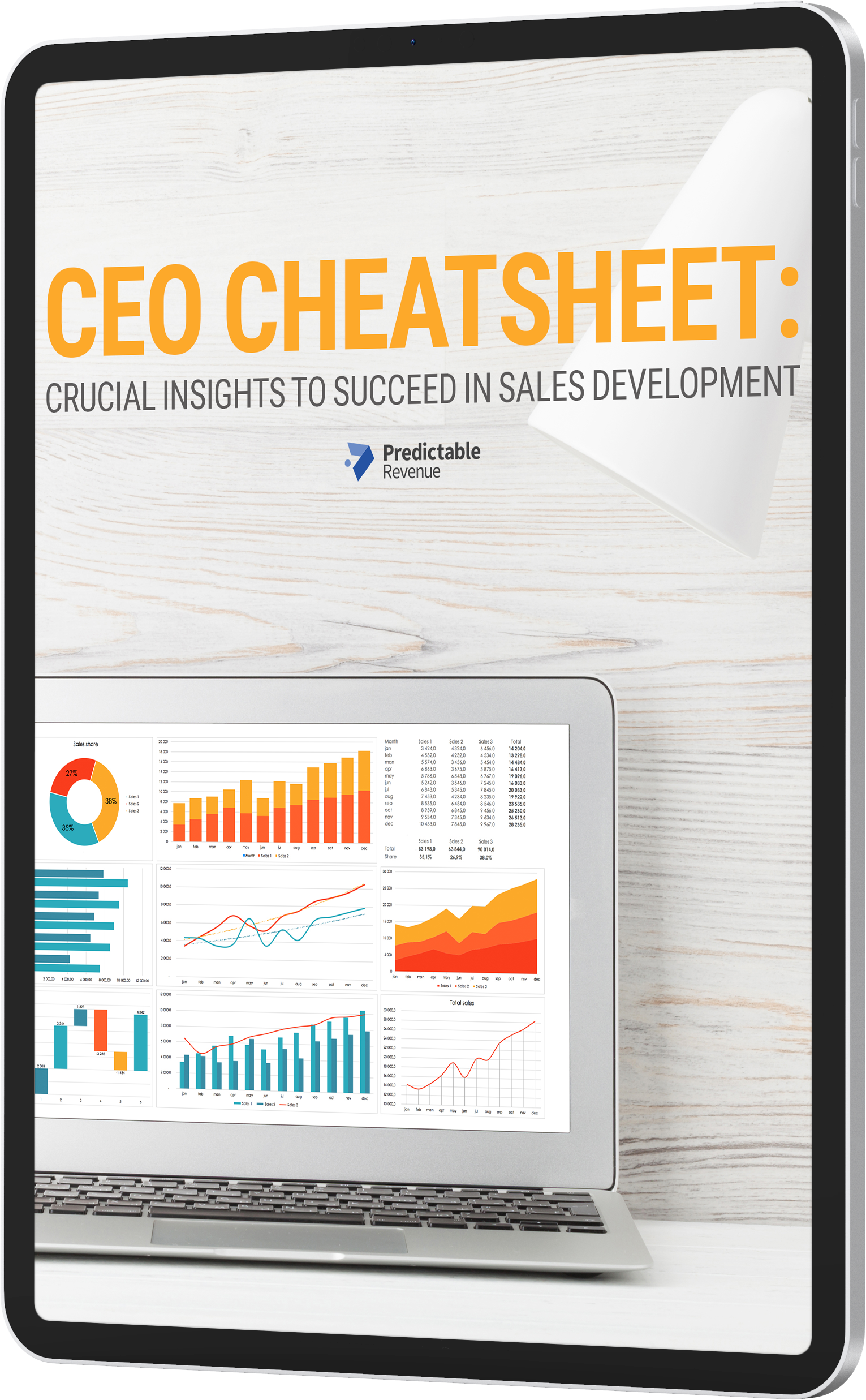
Sales development is the fastest way to grow your company’s revenue. Building a team of sales development reps (SDRs) and other sales professionals provides a fast, standardized system to connect with new leads and turn prospects into customers.
As you scale your business, it becomes imperative to generate consistent, repeatable, and predictable revenue. Sales development allows you to do that. By focusing on lead generation and filling your pipeline, outbound sales takes the guesswork out of where your next lead will come from.
In this cheatsheet, we’re sharing top insights to help you build, scale, and optimize your sales development function. From nailing your outbound sales message to motivating your team, choosing your tech stack, and more.

GET YOUR FREE COPY!
EXCERPT
Nailing Your Niche
Regardless of what industry you’re in, your company needs to establish itself as an expert in the field. In doing so, you’ll also define your niche, which is an essential part of your business’s growth.
If you haven’t identified your niche yet, you aren’t alone. Many entrepreneurs and business owners struggle with niching, to the point that they avoid it entirely. The problem is that their message becomes jumbled–by trying to talk to everyone, they’re reaching no one.
Many companies that have grown primarily through word-of-mouth struggle with lead generation and outbound prospecting. This is because they haven’t nailed their niche; their outbound sales team doesn’t know how to communicate why prospects need their product, or why a customer should choose them over the competition.
Here are a few tips on how to find and refine your niche.
Understand what a niche is and is not
The word niche is often misunderstood and misused. Your niche is simply a segment within your target audience where you strategically direct most of your marketing, resources, and time.
Having a niche helps you become a big fish in a small pond; it’s much easier to be successful in a small pond compared to a large one. When you fish in too large a pond (or multiple ponds), you’ll dilute your message and confuse prospects. Finding your niche will help you compete more effectively within your industry.
Your company’s niche is the specific area where you can position yourself as the expert. This is the space where you shine, bringing value and providing something no one else can do as well. When it comes to establishing an outbound sales function, this is also where you’ll focus the majority of your sales efforts to create awareness for your products or services.
Outbound vs. Inbound Niches
Your niche for outbound sales is different than inbound. If you’re doing cold outreach, your target audience likely isn’t familiar with your company yet and it will take more time and resources to go after them.
Outbound niches may be a subset of the inbound ideal customer profile (ICP) or they may be entirely separate; for instance, a new market or industry that isn’t yet aware of your product or service would be difficult to target with inbound.
Target deal size is another factor worth considering. Outbound sales require a larger investment of time and therefore the deal size should be larger as well, or you won’t generate enough revenue to justify the effort.
Why is choosing a niche important?
Nailing your niche gives you a competitive edge over other companies. Whether you’re a consultant, small business owner, or entrepreneur, there will always be competition. The best way to stand out from the crowd is to be a leader in your domain.
Your niche helps focus your value, messaging, and differentiating factors, so it’s easier for customers to understand and get excited about your offers. This is the reason why clients will buy your products or services over someone else’s.
Not only does this benefit your business, but it also helps filter out prospects that aren’t a good fit. Rather than being all things to all people, a niche allows you to focus on the one thing you do well. Once your niche is defined, you can focus your outbound sales efforts on only the most relevant prospects.
Copyright © 2021 Predictable Revenue. All Rights Reserved.